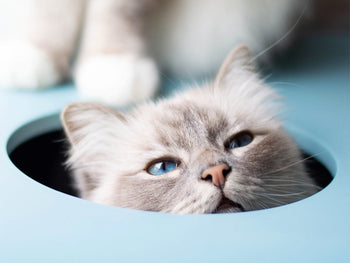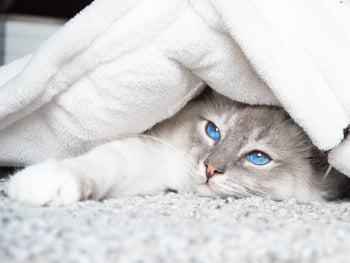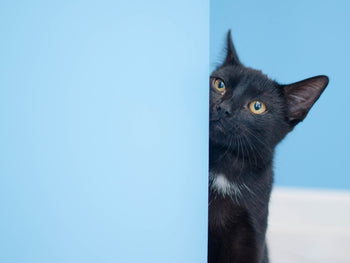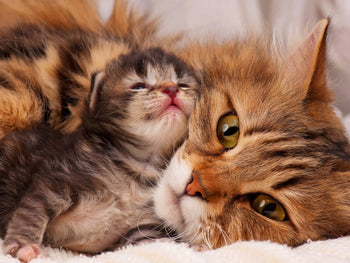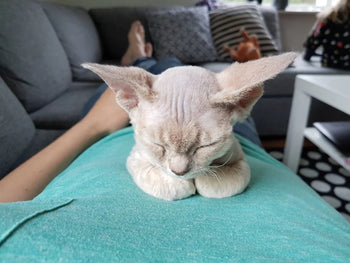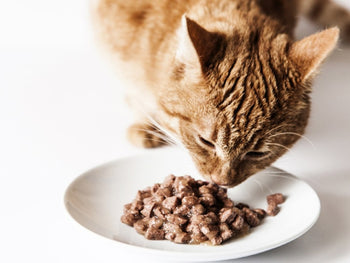Humans must consume some salts daily to stay healthy but how about our fluffy friend? Do cats like salt? Check out this article if you want to know.

Despite the fact that different people have different tastes, everyone universally agrees that salt is an indispensable spice in meals. For us humans, not only salt stimulates appetite but it also plays an essential role in regulating multiple body functions. However, once we adopt a cat, one issue comes up: What if the pet gets sick after ingesting salt accidentally? All cat parents know that the felines have a unique constitution which makes it dangerous to give them certain stuff. So do cats like salt? Is it safe to feed the pets something salty occasionally?
Need credible information about the cat's attitude toward salt? If that happens to be the case then you have come to the right place.
Could Cat Even Eat Salt

Do cats like salt? Maybe. But is it wise for humans to give the pets salt in the first place? Generally speaking, cats like to take a bite of various things in their view which might put them in danger. So before we get to analyze the cat's crave for salt, it's a good idea to understand if cats may safely eat salt.
To put it plainly, cats require salt to survive just like humans since they have to acquire critical minerals for their body (sodium and chloride). Therefore, it's safe to conclude that cats experience no trouble eating a bit of salt once in a while. Nonetheless, because of the difference in size, it's of utmost importance to moderate how much salt your furball consumes. In order to be on the safe side, keep your cat away from potato chips, canned soups and so on. Such foodstuffs often have enormous salt content compared to the usual need of the felines.
Most of the time, the average cats must take in around 20 milligrams of salt a day to stay healthy. It's still fine to give the pets slightly more than that but refrain from going over 40 milligrams per day.
Effects Of Salt On Cats

The minerals in the salt take care of a range of tasks in the body: keep the pH in check, carry nutrients to the cells, produce hydrochloric acid for digestion,... Hence, it's strongly recommended that you make sure your pets have access to salt. But as cats tend to act without a care in the world, pet owners need to supervise the amount of salt the felines ingest, not too much, not too little. Both lead to severe electrolyte imbalances that put the life of cats at risk if people fail to respond quickly.
Some signs that indicate your cat either eat too much or too little salt daily:
- Depression
- Stumbling
- Vomiting
- Diarrhea
- Coma
Once you notice these signs in your fluffy friend then you should take it to the vets immediately for treatment. In addition, regardless of what happens, don't ever give the poor pet medications without understanding their proper uses as that could exacerbate the situation.
Check us out for further detailed cat's health guide!
How To Give Cats Enough Salt In Their Daily Meals

Overall, there is a good chance that you are feeding your pet one of two types of foods: home-cooked foods and store-bought foods. Assuming that you take certain precautions, it's possible for your feline pal to get adequate salt no matter what foods it eats every day.
-
Home-Cooked Foods
If you truly want to prepare the meal for your cat by yourself, it's widely advised that you use fresh, free of spice ingredients. Feel free to follow whatever recipe you want to but if it comes to salt, remember to measure the amount carefully. Take the size of the pet into account to determine just how much salt it needs in a day. In case your furball is suffering from certain diseases, consult the vets to deduce the right amount for it. Most of the time, a few sprinkles of salt would likely do the trick.
-
Store-Bought Foods
Have to resort to commercial products because you are simply unable to afford the times to cook for your pet? If that is so, all you have to ensure that the feline receives enough salt is to check the label. The majority of manufacturers of pet foods attach a list of ingredients on the label. Your job is to search for anything that says "sodium" to judge the average salt content of that particular can. Normally, to keeping things fresh for long periods of time, dry foods tend to have higher concentrations of salt compared to wet foods on average.
Note: Cat treats count as foods too which is why you have to thoroughly assess their salt content before buying. Do cats like treats? Sure. But do cats like salt? That is a different matter. If necessary, use treats to supplement daily intake of salt of the pet but you must keep things under control. Refrain from handling treats frequently since it may introduce large amounts of salt into the delicate body of the feline. Better safe than sorry.
Cats That Seem To Love Salt: An In-Depth Analysis

Although cats do have excellent senses, they fail to notice as many flavors as humans. You think your pet got a sweet tooth sweet stuff because it likes to lick ice-cream time and again? Nah, what the feline love is the fat in the ice-cream, not the sweetness of the ice-cream itself. As a result, it's best for pet owners to avoid presuming if cats like to chomp on something then they surely like the taste. The same could be said about salt: Cats might go after salty foods on their own initiative but it's doubtful that they like salt.
All things considered, the most suitable answer to the question of "do cats like salt?" is "not really", most cats rarely bother with spice anyway. That being said, it's your duty to make certain that your pet gets enough salt into its system daily.
Looking for more interesting Cat Tips & Facts? Visit Cattybox!
